#the thing about helen and olga
Explore tagged Tumblr posts
Text
Helen and Olga are kindly old ladies who open their hearts and wallets to down-and-out men in Los Angeles. In a city named for angels, the two women seem heaven-sent. After one of the men is killed by a hit-and-run driver - and then another suffers the same fate - investigators uncover a horrifying and twisted plot that stuns even the most seasoned detectives....
0 notes
Text
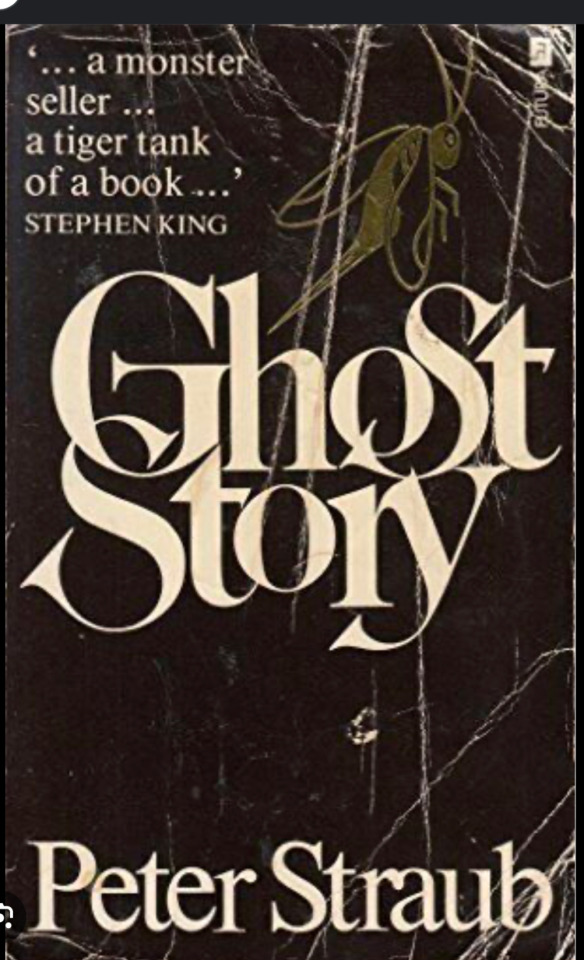

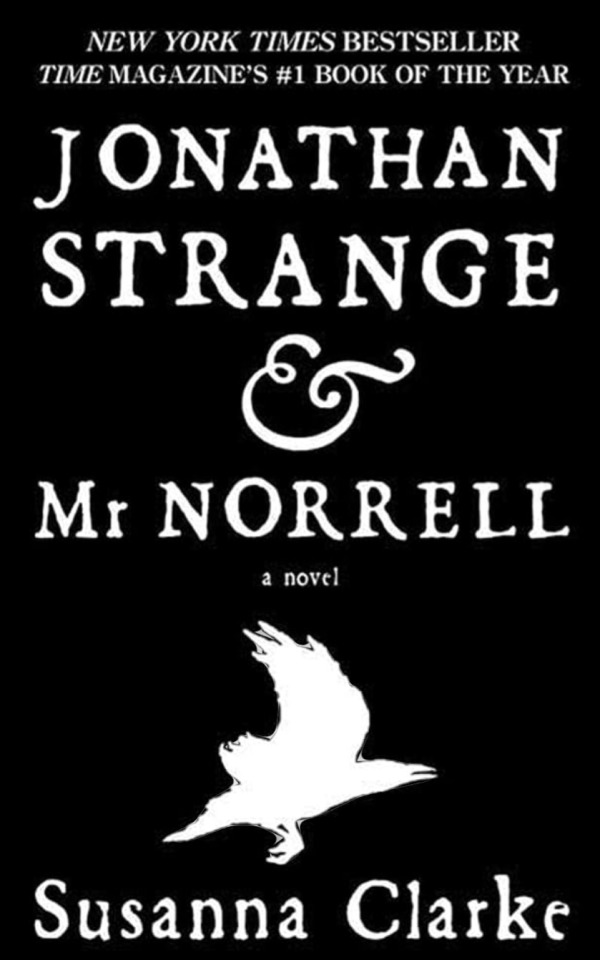
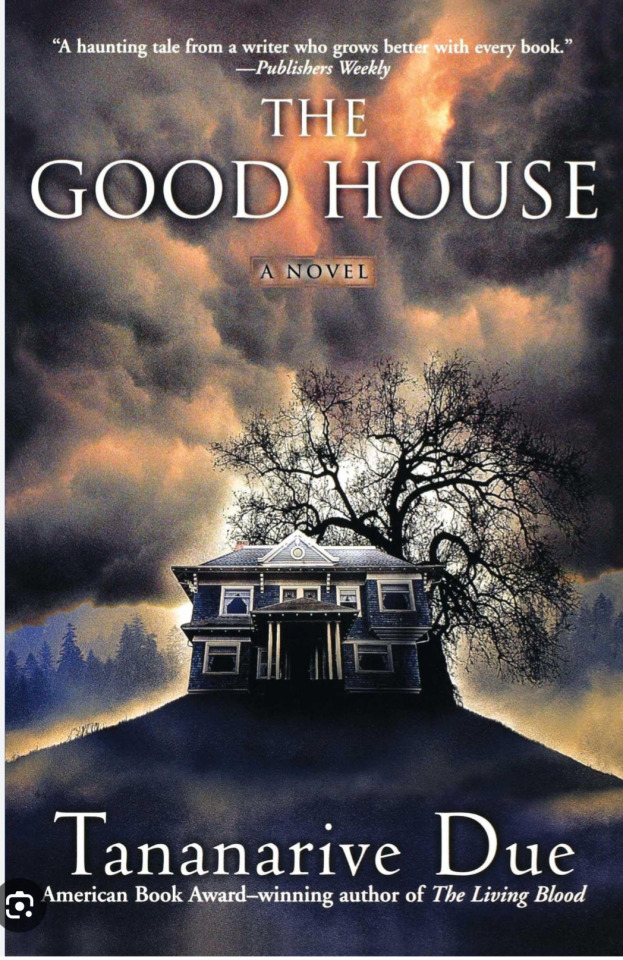
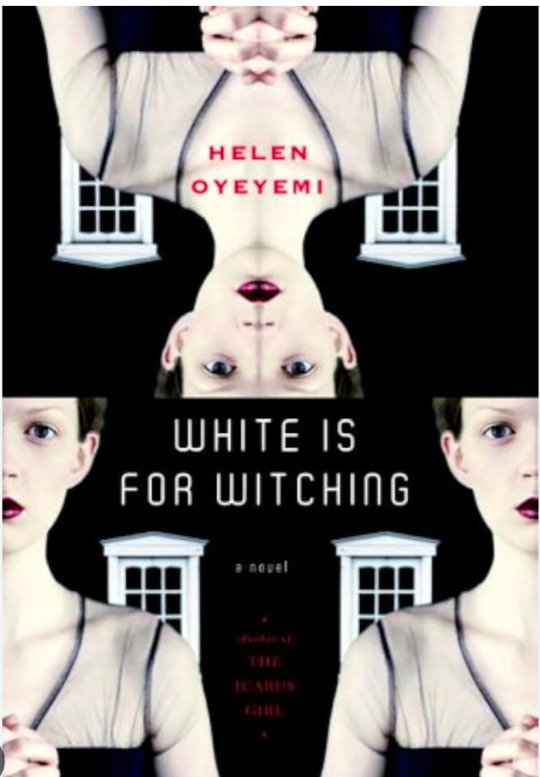
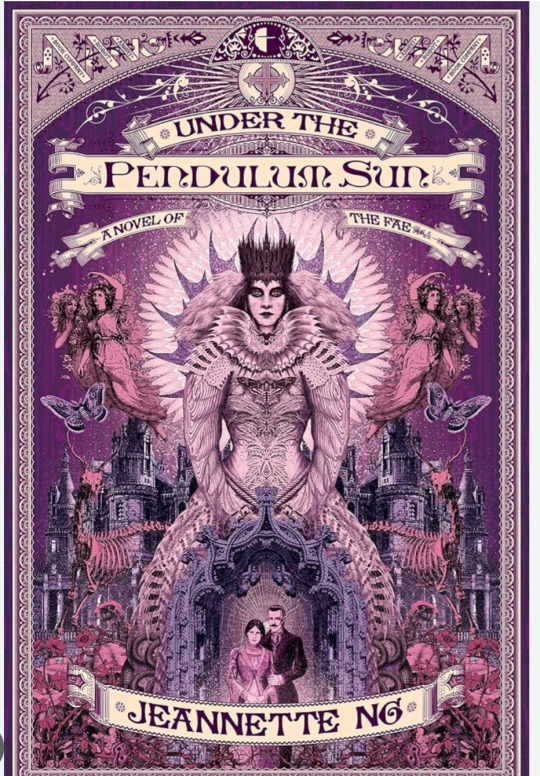
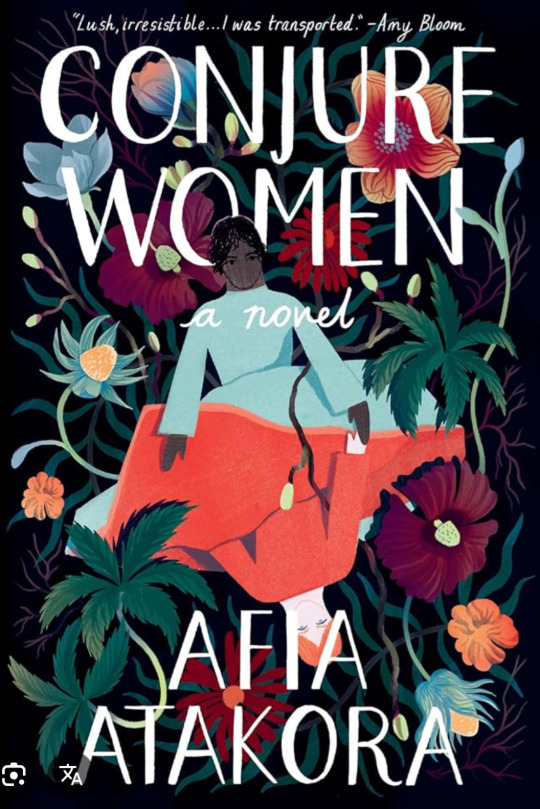
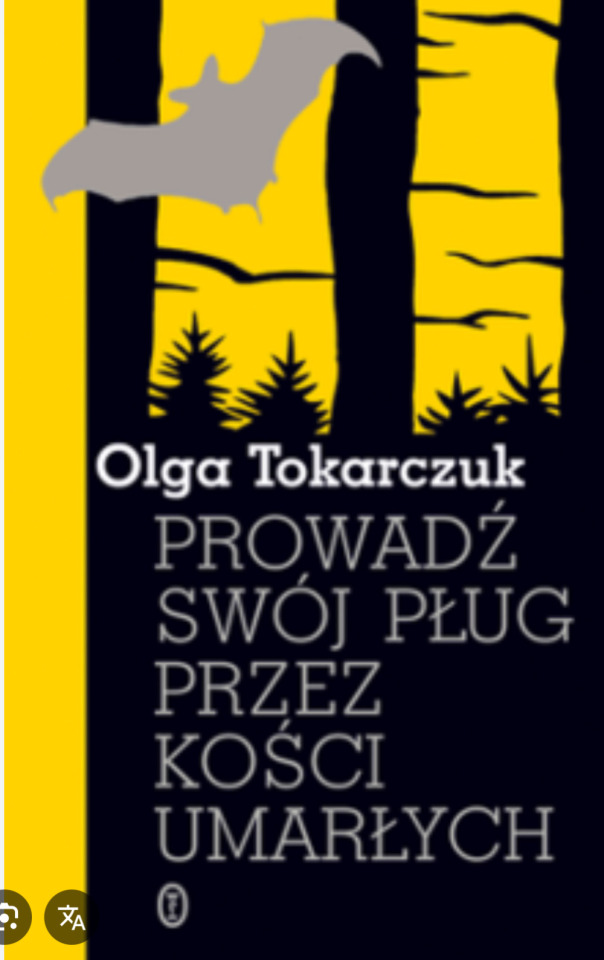
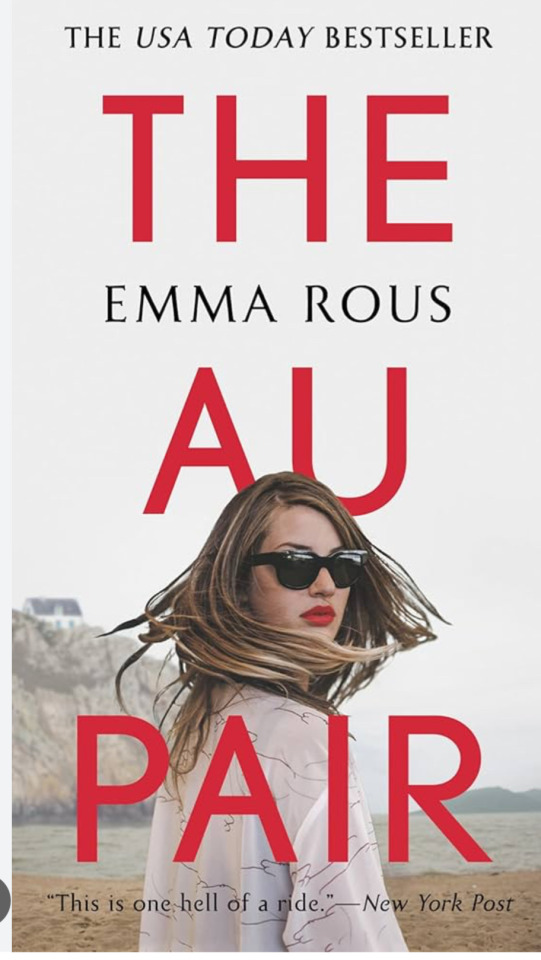
"No live organism can continue to exist sanely under conditions of absolute reality; even larks and katydids are supposed, by some, to dream..."
Book Recs: The Gothic After Shirley Jackson
Peter Straub, Ghost Story: One of the great horror novles about misogyny that is also misogynistic. But, I will say in the 30 or so years that this book has been in my life, I've come to see it as smarter and more interesting with its unreliable protagonists than I had previously thought. And this is partially the skill of the writer unfolding for me as I mature, but I cannot help but think that Current Events make it impossible to not see the Chowder Society as an allegory for the U.S. Supreme Court
Rene Depestre, Hadriana In All My Dreams: A gorgeous, richly written zombie story but I also think a very early exploration of the ideas you find in a lot of feminist horror critiques. What if the beauitful dead girl wants to be something other than beautiful and pure and perfect and dead?
Susannah Clark, Jonathan Strange & Mr Norrel: The hype over this book when it came out was so intense that I think I undervalued it at first because it could not possibly have lived up to that hype. But it truly is excellent.
Tananarive Due, The Good House: This book is such a perfect iteration of the Steven Speilberg/Stephen King style of normal family in peril. Due's latest book, The Reformatory has won so many horror awards this year and it also a wonderful new version of books about the children fighting evil. There's so much heart and warmth in all her books, even when awful things happen.
Helen Oyeyemi, White is for Witching: A austere, Jackon-esque haunted house book that also reminds me a lot of Sarah Waters' The Little Stranger. It's very much rooted in the conservative, nightmarish era of the 1980s, which makes it now relevant for today.
Jeanette Ng, Under the Pendulum Sun: This book about Victorian missionaries in the fairy realm ends up on so many of my recomendation lists. If Under the Pendulum Sun has one fan, and it might, that fan is me. But I remain ever hopeful that I will be able to persuade enough of the reading public that it gets a sequel.
Afia Atakora, Conjure Women: A book that is riffing on both Jane Eyre and The Beguiled and, most of all, digging in the rich gothic soil of "how do we live together after betraying each other to survive?"
Olga Tokarczuk, Drive Your Plow Over the Bones of the Dead: What else can be said about this book? It's an ecofeminist Hannibal episode in the most complimentary way possible. It's probably insulting to put Tokarczuk on a list with such goofy books, but she's having fun here.
Emma Rous, The Au Pair: This is the stupidest book on this list. It is possibly one of the stupidest books ever written, something I say with profound love and admiration. Nothing that happens in this book makes emotional or medical sense, and yet, it's a fucking blast.
223 notes
·
View notes
Note
Do you know more information about Olga and Elizabeth (Daughters of Nicholas of Greece and Denmark ) in terms of their personality? I know that their younger sister was the Duchess of Kent but not a lot on them. I know Olga married Prince Paul of Yugoslavia and Elizabeth to a Bavarian Count? Although wiki does really tell much about Olga but it mentions she was briefly engaged to Frederik of Denmark and she had a "discreet, romantic and fragile personality". And of course Poor Elizabeth barely had anything on her. She seemed to have been overshadowed by Olga and Marina.
Elizabeth was definitely the least-known, and it may be that she preferred it that way. She's often described as more reserved and shy than the other two, and nicer.
Some reflections from Hans Veit, Elizabeth's son: "My mother was a soft soul and bad times really affected her. . . don't mistake this, she had a strong will and was a survivor, but the atrocities of the war, combined with the loss of friends and family and the destruction all around us affected her deeply."
"My mother was a beautiful woman, and I say so not as her son, but as someone who appreciates beautiful people and things. She painted and sketched rather well. She had a great sense of beauty and was very elegant by nature. My mother was extremely modest and possessed great charisma and charm. Olga and Marina were more alike, but the three were extremely close. My mother loved gardening and she was quite good at it. [. . .] Mother was very religious and remained a fervent Orthodox her entire life. She would go to church with us, we are Catholics, but she never considered changing her religion."
"Olga was a bit strict, but had a fantastic sense of humor. I think my mother was the kindest of the sisters, she had the best heart. [. . .] The two aunts used to make terrible remarks [when they visited Munich], thinking no one could speak English but them. [. . .] I thought Princess Olga was very beautiful, slightly austere, very disapproving but also, perhaps, a little insecure."
From Elizabeth's daughter, Helen:
"[Elizabeth] loved to go to the village to talk to the villagers, always dressed as simply as possible, and she wore no make-up."
From Olga and Elizabeth's niece, Alexandra of Kent:
"The one we warmed to particularly was Elizabeth, Helen's mother, known as Auntie Woolly. We liked Auntie Olga -- known as Pigga. Auntie Woolly was attractive, but not as good-looking as Auntie Olga."
From Olga's daughter, Elizabeth of Yugoslavia:
"My Aunt Elizabeth was adorable. He was difficult, her husband, I didn't care for him at all, but she was kind and loving and very warm. Beautiful amber-colored eyes, I remember. She was beautiful."
Their uncle, Prince Christopher, described Olga as "merry, philosophical and practical to the last degree."
Marina's biographer Stella King: "Countess Toerring [Elizabeth], a gay, sweet, amusing person, was the least known and most retiring of the sisters. But the other two often said that she had by far the nicest nature of them all."
12 notes
·
View notes
Note
I've read every single book I can find on the Romanovs but would like some help finding more books. I just found your blog and I love it!
Hello, thanks for your question. Here are some of my favourite more obscure books for those of you who have read all you can find and raided the libraries!
The Romanovs Under House Arrest: From the 1917 Diary of a Palace Priest edited by Marilyn Pfeifer Swezey
A short, but interesting and beautifully illustrated book that translated the diaries of Archpriest Afanasy Belyaev into English. It gives an insightful look into the last few months and weeks the Romanovs spent at the Alexander Palace and their faith.
LUNCH ON THE BALCONY: Recipes from the table of Russia’s last imperial family by Helen Azar
Can you tell I'm hungry right now? This book has some nice information about the Romanov's food, showing menus they used, letters and diary entries referencing food, and recipes used in the imperial kitchen that you can try at home.
Last Years of the Court at Tsarskoe Selo Volumes I and II by Count Alexander Spiridovich, edited and translated by Katherine Alexandra Hines
A lengthy look at the Count's role as a member of court and security duties. These volumes have some interesting passages about OTMA, though they focus more on the political activities of the Romanovs.
The Forgotten Tutor: John Epps and the Romanovs by John Epps and Dr. Gabriella Land
John Epps, an English tutor to the imperial children, remains a somewhat elusive figure in literature about the Romanovs, with very little information available about him in comparison to fellow tutors Gilliard and Gibbes. I have personally found it very difficult trying to track down this book as it was published a decade ago and seems to have only had one limited print run. The extracts that I have read have been very interesting. If you're interested in OTMA's childhood and education, this book is perfect for you - but good luck finding it! :(
A Few Years Before the Catastrophe: The memoirs of Sofia Ivanovna Tyutcheva edited and translated by George Hawkins
A very short but interesting read directly from the recollections of Sofia Ivanovna Tyutcheva who looked after the children. It gives a short but enlightening look at how things were run in the nursery.
When Miss Emmie Was in Russia: English Governesses Before, During and After the October Revolution by Harvey Pitcher
This book has a more sweeping view of Russian nannies in general, but has some nice tidbits of information about OTMA's nannies, such as Margaret Eagar (though she was Irish, not English!). If you enjoyed Charlotte Zeepvat's book on royal nannies that has some great info and sources on OTMA, this is a good follow up read.
Step-daughter of Imperial Russia by Natalia Mamontova Majolier
Recollections from Natalia "Tata", Grand Duke Mikhail Alexandrovich's beloved stepdaughter. Lots of information about growing up with Mikhail and experiencing the Revolution.
Russia, My Native Land: A U.S. Engineer Reminisces and Looks at the Present by Gregory Tschebotarioff (Chebotaryov)
Written by the son of Grand Duchess Olga and Tatiana Nikolaevna's fellow nurse and friend, Valentina Ivanovna Chebotaryova, this memoir gives a greater picture of Valentina's life by including extracts of her diary. It also has details about Gregory's experience serving in WWI.
Anastasia's Sisters: Their Diaries, Letters and Memories edited by Raegan Baker and translated by Catherine Hamel
A short book with extracts from Grand Duchesses Olga, Tatiana, and Maria's writings. I always find it interesting to read different translations of the same sources and find various changes made my each translator. As always, translations rely on the translator's discretion and interpretations.
The Many Deaths of Tsar Nicholas II by Wendy Slater
This book is an academic, somewhat cold and clinical, look at the deaths of the Romanov family. The compilation of scientific analysis (though this was published in 2007, so not accurate to recent discoveries) during the middle sections is the best part of this book, as the fictionalised narrative at the start doesn't appeal to me and the analysis during the latter stages veers off focus.
The Jewel Album of Tsar Nicholas II and a Collection of Private Photographs of the Russian Imperial Family by Alexander von Solodkoff
A lovely illustrated book - if you can afford it!! This regularly sells for over $100, but is very detailed and beautiful, including high-quality full-colour copies of Nicholas' "Jewel Album" with his annotations and marvellous drawings.
My Father by Maria Rasputina
For fans of the infamous Rasputin, this glimpse into how daughter Maria perceived her father is an interesting read. Rasputin is one of the most contentious and well-researched figures in this area of history, and reading his daughter's experiences and how she viewed his healing of Tsarevich Alexei is a unique viewpoint.
The Emperor Nicholas II: As I Knew Him by John Hanbury-Williams
Major-General Sir John Hanbury-Williams provides an intimate look at life during WWI in Russia, from the perspective of his role as an English representative at Stavka. Some interesting observations about Nicholas and Alexei.
Lost Tales: Stories for the Tsar's Children by Gleb Botkin
Gleb Botkin, only seventeen, composed and illustrated this series of tales (collected here as one book) for the imperial children during their imprisonment at Tobolsk. A lovely look into Gleb's artistic skills, and the interesting parallels between his animal characters and the revolution. Not necessarily a history book, but an interesting insight into life at Tobolsk.
In case I missed any, if you search #q and #answered on my blog it will come up with a list of previous questions, a lot of which relate to reading recommendations, so you might find some more suggestions there.
For information of a compilation of primary source writings written by the Romanovs that have been translated into English, see here
Happy reading!
24 notes
·
View notes
Text
It Is Okay To Be Different, Even In Catholicism
My Confirmation is in one week, and I had a realization in the middle of class last week.
While attending RCIA classes the other night, Father Chris asked us who we were choosing as our saints for Confirmation. A few giggles erupted, and most weren't sure who they were going to choose just yet. One spoke of Saint Helen, the other of Saint Victoria; The elders in the room then turned to me.
I had told one of the elders who my saint was going to be [a few weeks ago], and it seemed she was very interested in what I had to say to the class. After all, I am the first person in my diocese to choose a Confirmation saint that is established in the Eastern Orthodox Church.
I immediately began defending my choice; She is a direct ancestor of mine, after all, and family defends family.
Quietly, I said, "Saint Olga". The only thing anyone could choke out was, "She's so metal". I was taken aback by this at first, though I knew the common vision of Saint Olga: A terrifying, intelligent, murderous pagan. I met this interpretation with a historical analysis of Olga's entire life, not just the bits that would profit a cinematic studio.
Yes, she did pour her heart and soul into getting vengeance for her husband who'd been murdered--and yes, she did devise some incredibly intelligent plans to do so. But that is not why she became a saint, and it is not why I chose her.
Like my great-grandmother [xprobably 15], I too had spent my life turning a cheek to peace-keeping; Instead, I was solely focused on 'correcting' those who had done me harm. Second, I am a convert. I was a practicing pagan for years, during which I was at my angriest, and it took external intervention to convince me as to the error of my ways. Third, I take pride in my intelligence. Saint Olga was able to slip her hand out of three marriage proposals, utilizing her natural intelligence and ability (need we mention the Drevlians). Lastly, I have found myself 'ousted' from my familiar social circles; Many of those I was once close to are still pagans. I still love them dearly, though they deny and denounce my religion and faith in Christ, however.
Most were silent in response to such an unexpected history lesson, but the elders had pride in their eyes; They knew I had done my research and fully, finally, accepted who was likely meant to be my Confirmation saint. And believe me, I tried ignoring and even outright denying that Saint Olga would be my Confirmation saint. Nevertheless, every time I opened my phone or laptop, there she was. Every time I would flip through our encyclopedia of saints, there she was. Her thought burned in my mind; In spirituality, this would be considered a sign that an ancestor is reaching out specifically to you. There was no escaping her--that is how I knew.
Not always will your Confirmation saint be one that shares your name, birthday, or is the patron of your occupation. Not always will they be a ray of glittering sunlight with a spotless record, and not always will they be more than human. Truthfully, there is something remarkable about connecting with a saint who is none of these things; Who is raw, emotional, and shares little with you beyond your own struggles. It is their triumph over these struggles which gave them the title they now have.
Take pride in your decision, and know that there is a saint for every situation, and every person, on this planet. Take joy in the fact that it is okay to be different from other members, and that they will celebrate you all the same.
2 notes
·
View notes
Text
I'm still physically wiped out and my head's too fuzzy to do 'real' writing/revisions on my story, but I'm just coherent enough that I want to chitter-chatter about my fic.
So in the course of working on Choices, one of the things I've spent an inordinate amount of time on is figuring out the 'cohorts' for the valleyfolk. What I mean by 'cohorts' are the groups of people who are in a similar age-range to one another and then further subdivided into 'natives' (aka 'people who grew up together in the valley') and 'transplants.' After all, one of the things I'm trying to accomplish is interweaving three large expansion mods with the base game and coming up with a cohesive whole, and that means knowing who from the various mods have known each other basically forever.
Under the cut, I break down who's in what cohort. I may or may not later flesh out my thinking about why I plopped certain people into certain groups, mostly because when I started to do so with this list, the post grew disgustingly (more) bloated. If I do, I'll probably do a separate post for each cohort. After all, this is the site for rambling about this sort of random stuff, right? 😅 (Edit: that's exactly how I spent my afternoon. You can find my thoughts on each cohort here: Gen 1, Gen 2, Gen 3, Gen 4, Gen 5.)
If you squint just right, these could be considered spoilers for SVE/Ridgeside/East Scarp.
I divided the population of the valley into five different cohorts/generations. Ages are based on how old they are/would be during the course of Choices. They are also in order of eldest down to youngest. I have actual ages recorded for most of the characters, but it cluttered up this list waaay too much.
(OG) - Base Game, (SVE) - Stardew Valley Expanded, (R) - Ridgeside, (ES) - East Scarp
Gen 1 (Aged 60+) Natives
Maive (R)
Richard (R)
Gil (OG)
Evelyn (OG)
Linus (OG)
Willy (OG)
Lenny (R)
Gen 1 (Aged 60+) Transplants
George (OG)
Mr. Aguar (R)
Sonny (R)
Mrs. Olsen (Emily and Haley's mother) (OG-ish)
Lola (R)
Freddie (R)
Gen 2 (Ages 40-60) Natives
(56-60)
Lewis (OG)
Vivienne (ES)
Jessie (ES)
Mr. Olsen (Emily and Haley's father) (OG-ish)
Lily-Anne (ES)
Ezekiel (R)
Clement (ES)
(50-55)
Helen (R)
Marlon (OG)
Daisy (Adventurer's Guild Expanded)
Mark (ES) (Sterling's father, unnamed in mod)
Jess (ES) (Henry's father, unnamed in mod)
Pierre (OG)
Alecto (Stand Alone)
Robin (OG)
(46-50)
Marnie (OG)
Gunther (OG)
Susan (SVE)
Kimpoi (R)
(40-45)
Kent (OG)
Bert (R)
Olga (R)
Lorenzo (R)
Caroline (OG)
Gen 2 (Ages 40-60) Transplants
(56-60)
Rasmodius (OG)
Carmen (R)
(51-55)
Pam (OG)
Andy (SVE)
Jodi (OG)
Demetrius (OG)
(46-50)
Olivia (SVE)
Pika (R)
Malaya (R)
(40-45)
Naomi (R)
Gen 3 (Ages 25-39) Natives
(31-36)
Tristan (ES)
Clint (OG)
Shane (OG)
Henry (ES)
Sterling (ES)
Mona (OG/ES?)
Jacob [He turns 31 during the fic] (ES)
(25-30)
Mateo (ES)
Jasper (ES)
Kenneth (R)
Emily (OG)
Sandy (OG)
Anton (R)
Maria (R)
Paula (R)
Gloria (ES)
Zayne (R)
Kiarra (R)
Sophia (SVE)
Gen 3 (Ages 25-39) Transplants
(31-39)
Harvey (OG)
Shanice (R)
Callie
Mia (ES)
Elliott (OG)
Leah (OG)
Bryle (R)
(25-30)
Philip (R)
June (R)
Kataryna (ES)
Jeric (R)
Aideen (ES)
Rosa (ES)
Flor (R)
Irene (R)
Gen 4 (Ages 18-24) Natives
Penny (OG)
Sebastian (OG)
Alissa (R)
Abigail (OG)
Shiro (R)
Corine (R)
Sam (OG)
Ysabelle (R)
Alex (OG)
Haley (OG)
Lexi (ES)
Blair (R)
Gen 4 (Ages 18-24) Transplants
Victor (SVE)
Maddie (R)
Faye (R)
Juliet (ES)
Sean (R)
Gen 5 (Ages 5-17)
Maru (OG)
Oliver (ES)
Ariah (R)
Trinnie (R)
Keahi (R)
Eloise (ES)
Louie (R)
Vincent (OG)
Jas (OG)
Yuuma (R)
Lavril (ES)
Gen 5 (Haven't decided ages yet)
Leo (OG)
Morgan (SVE)
Bliss (R)
Pipo (R)
Undreya (R)
Yeah, I know there are characters missing (especially from East Scarp, as I have difficulty keeping track of all the individual NPC mods, and SVE), but there it is. I wonder if this is actually interesting to anyone other than me. Oh well. 😅
#stardew valley#sdv#stardew headcanon#stardew choices#stardew valley expanded#ridgeside village#east scarp
13 notes
·
View notes
Note
I am. Very curious about your Hanh headcanons because I would like to write her but I don't really know where to begin so. 😁
Oooh!!! So basically in my headcanon the mysterious unnamed scientist seen arguing with Advisors in half-life Alyx is Doctor Helen Hanh (firstname made up by me, lastname was hers in the HLA beta, also I headcanon that Olga from the beginning of the game is Olga Hanh, her niece or something, since she also has a name tag with that lastname), a former Aperture scientist who was big on robotics and possessed an ultimate dream of using machines to open the path to immortality for humanity. Entirely unsurprisingly, Cave assigned her the task of leading the GLaDOS project, and she was largely responsible for discovering the method to storing a human consciousness in a computer. However, as the project went on, Helen slowly realised that this was nothing at all like the glorious immortality she had visualised, a cursed half-existence spent fulfilling tasks just like any machine, she tried to get Cave to stop, but that man would let absolutely nothing get in his way, he grew more and more demanding, so eventually Helen just packed her things and left before the project was done. By the time the news had reached her that her co-worker and close friend Caroline was forced to live the nightmare she designed and killed most of Aperture in the process, she had lost her faith in both human science and humanity as a whole completely. If Breen is the anti-Eli, Hanh is the anti-Kleiner. Eli believes there’s always hope, Breen thinks hope is futile and surrender is the only choice. Kleiner believes human ingenuity will always prevail, Hanh believes humanity to be a civilisation incapable of progressing further without destroying itself that can only save itself by assimilating into a greater race. When Breen’s deal with the Combine was established, she saw an opportunity and took it, quickly rising the ranks to be almost equal to Breen in pseudo-authority, his right-hand woman. Like Breen, she is aware of her role as little more than a puppet, but unlike him, she is willing to stand her ground and try and get the Combine to at least somewhat respect them, hencewhy she confidently mouths off to Advisors (after Cave Johnson, they’re little more than pushovers unless it’s about something really important like the Vault.) Though Breen writes the words themselves of his own speeches, the ideas within them are almost entirely Helen’s. She recognises the pain of the Combine’s oppression but sees it as a means to an end, a way for petty, insignificant humanity to earn the respect it needs to advance.
Also she is the one who recruits Mitchell in sequel!HDTF because she sees the idea of a human who sided with the Combine killing the One Free Man as a brilliant propaganda opportunity.
4 notes
·
View notes
Text
Thoughts on The Thing About Helen and Olga
I just started this podcast about two old ladies running an insurance scam. They pretended to help homeless men and then murdered them to collect the insurance money. And just like in the classic film noir Double Indeminity, they were tripped up by an insurance investigator.
People's greed and their ability to convince themselves that they've figured out all the angles never ceases to amaze me. They honestly believe that there won't be any red flags and the insurance company will simply pay the money, no questions asked.
Insurance companies are businesses though. They like their money and don't like paying out. It's not just the cops they have to fool. It's insurance investigators, friends, family, lawyers and private investigators, just to name a few. I do enjoy watching them figure out that they're not as clever as they thought they were.
0 notes
Text

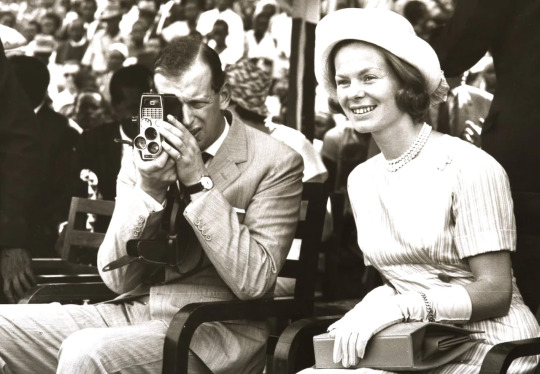
The Duke on his way to ski in Munster in the 1950s. On a previous occasion he had forgotten his passport, causing a mini crisis at the airport. This time he remembered
In Uganda with the Duchess of Kent, 1962
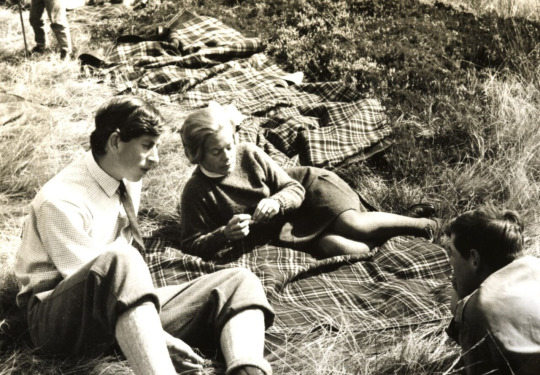
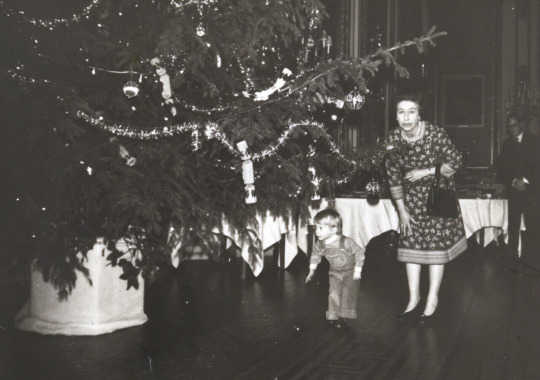
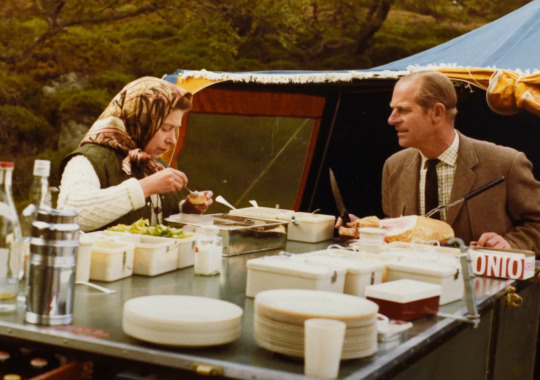
Prince Charles with the Duchess of Kent at Balmoral in about 1970. They shared an interest in music, especially opera
Christmas at Windsor Castle in about 1977: The Queen with the Earl of Ulster, and in the background the Earl’s father, the Duke of Gloucester. The Royal Family loved staying at Windsor, and in particular the moment that the Queen threw open the doors and the children rushed in to get their presents
The Queen and Prince Philip enjoying a picnic lunch at Balmoral in the 1970s
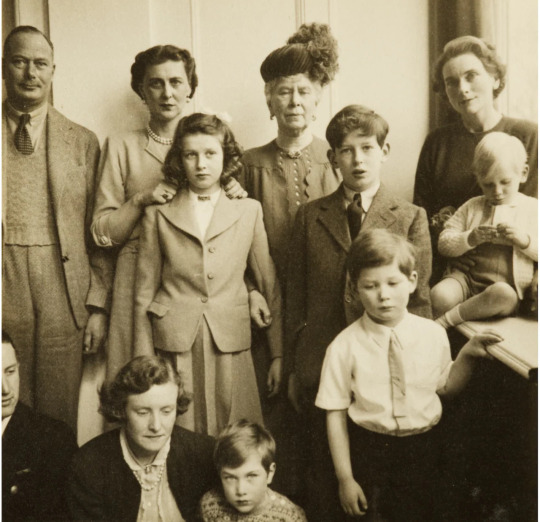
The Royal Family together. Left to right (back row) – the Duke of Gloucester, Princess Marina, Queen Mary & the Duchess of Gloucester. Middle row – Princess Alexandra, the Duke of Kent & Prince Richard of Gloucester. Front row – Princess Margaret of Hesse, Prince William of Gloucester & Prince Michael of Kent
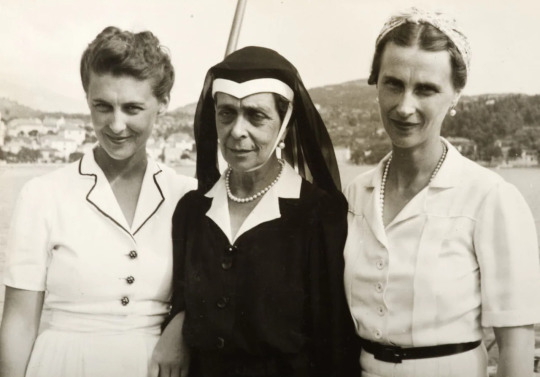
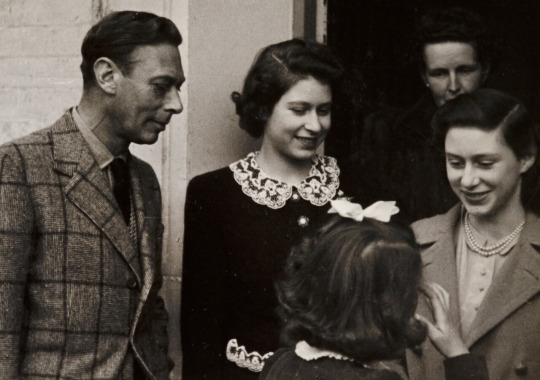
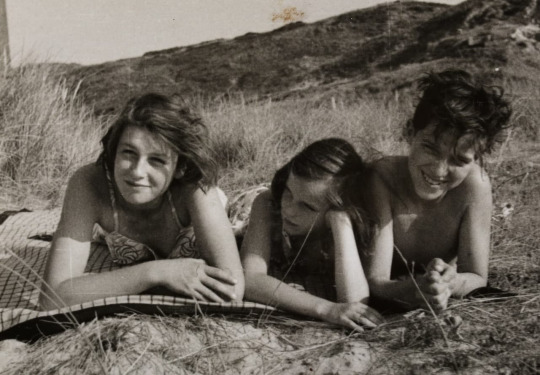
Princess Marina with her mother, Princess Nicholas of Greece, and her sister, Princess Olga. Princess Nicholas, a formidable Russian Grand Duchess, and by then a widow, lived at Psychico, a suburb of Athens. Her daughters were frequent visitors
King George VI at Coppins with Princesses Elizabeth and Margaret
Princess Alexandra (left) with cousins Helen Habsburg and Hans Veit Toerring in Norfolk
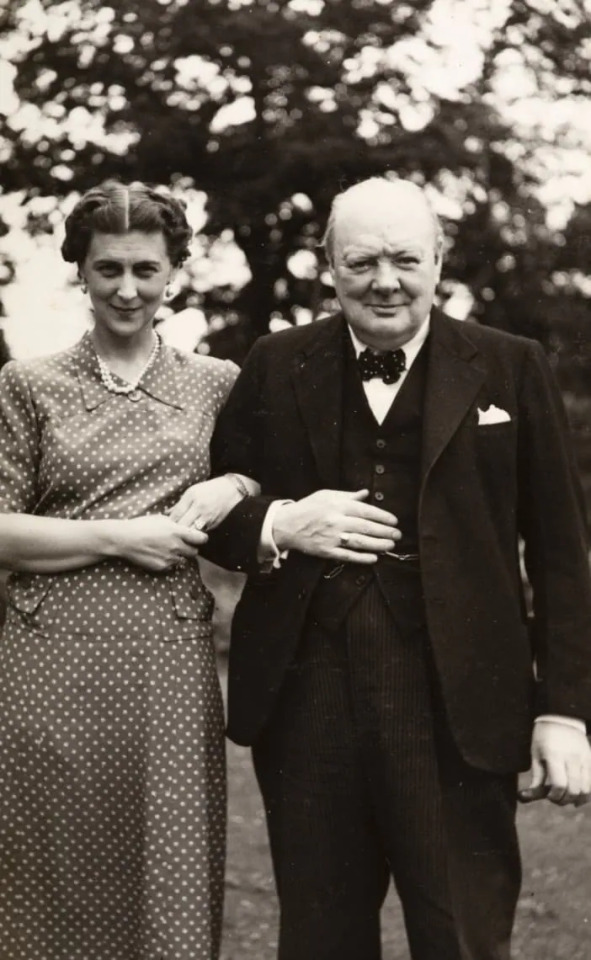
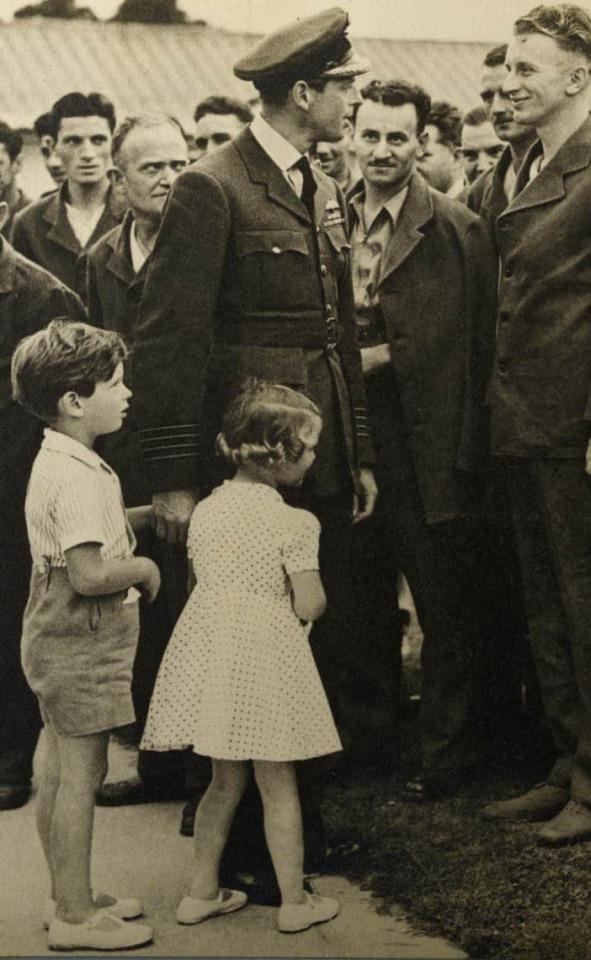
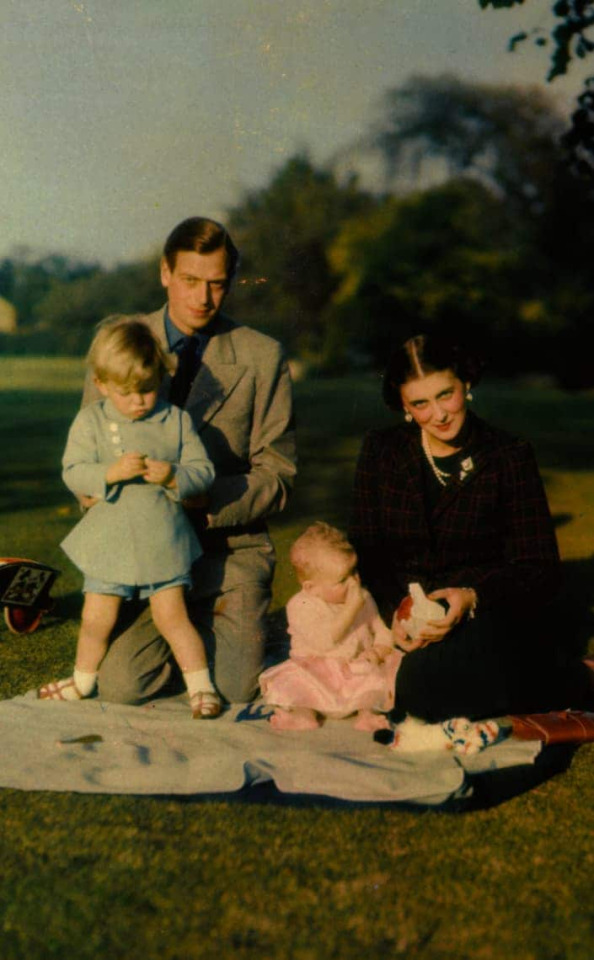
Princess Marina with Winston Churchill, who came to lunch at Coppins towards the end of the war, in 1944. ‘And who is this?’ asked the great statesman on observing the Duke, then aged nine
With his father, Prince George, and sister, Princess Alexandra
Prince Edward with his parents and sister
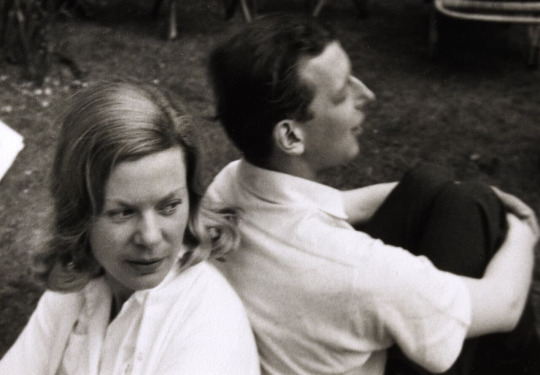
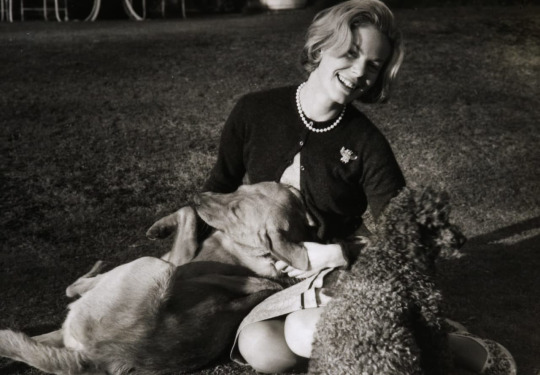
The Duke and Duchess together at Coppins in the early days of their marriage
The Duchess of Kent with her Labrador, Columbus, and her poodle, Charlie, soon after she married the Duke in 1961
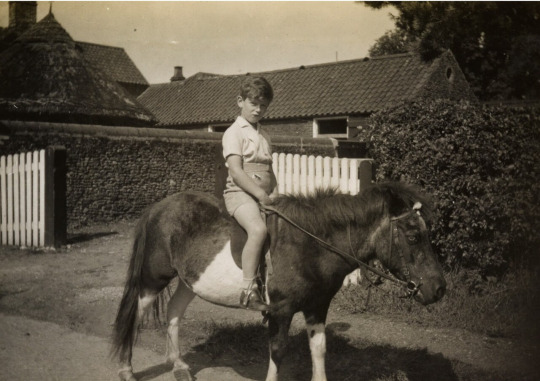
Prince Edward on a pony at Horace Smith’s riding school at Bray. The Duke found him a bit severe – he was a proper old school riding instructor who always wore highly polished boots
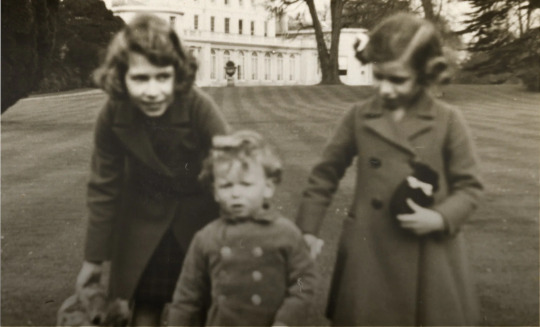
'I always felt I wanted to support her. That’s by far the most important thing in life': HRH The Duke of Kent, then Prince Edward, between the Queen, then Princess Elizabeth, and Princess Margaret, at Frogmore House in Windsor, 1930s
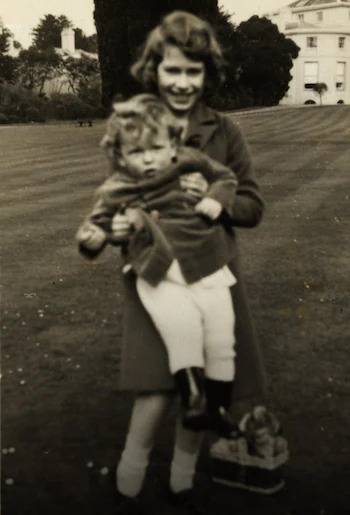
Princess Elizabeth (Queen Elizabeth II) lifting Prince Edward of Kent (Duke of Kent)
Inside the Duke of Kent's private royal family photo album
#duke of kent#duchess of kent#british royal family#queen elizabeth ii#prince philip#princess margaret#princess marina#prince george DoK
68 notes
·
View notes
Text
Books Read in 2022
Faggots by Larry Kramer (1978)
Drive Your Plow Over the Bones of the Dead by Olga Tokarczuk (2009)
Never Be Alone Again: How Bloghouse United the Internet and the Dancefloor by Lisa Abascal (2020)
The Buried Giant by Kazuo Ishiguro (2015)
Arriving Today by Christopher Mims (2021)
But What If We’re Wrong? by Chuck Klosterman (2016)
Fuccboi by Sean Thor Conroe (2022)
Red Notice by Bill Browder (2015)
How Should A Person Be? By Sheila Heti (2010)
Astragal by Albertine Sarrazin (1965)
Human Wishes Enemy Combatant by Edmund Caldwell (2011)
Night Boat to Tangier by Kevin Barry (2019)
This is How They Tell Me the World Ends by Nicole Perlroth (2021)
Air Guitar: Essays on Art and Democracy by Dave Hickey (1997)
1Q84 by Haruki Murakami (2009)
Gentleman Overboard by Herbert Clyde Lewis (1937)
A Wreath for the Enemy by Pamela Frankau (1954)
Lightning Rods by Helen DeWitt (2011)
Fleishman is in Trouble by Taffy Brodesser-Akner (2019) (reread)
LaserWriter II by Tamara Shopsin (2021)
By Night in Chile by Roberto Bolano (2000)
Hot Milk by Deborah Levy (2016)
The Last Samurai by Helen DeWitt (2000)
Milkman by Anna Burns (2018)
The Golden Spur by Dawn Powell (1962)
They by Kay Dick (1977)
Bliss Montage: Stories by Ling Ma (2022)
Status and Culture by W. David Marx (2022)
This was a big year for me both for quantity (nearly twice as many books as i read last year) but also for quality. So many standouts! And I'm learning I'm very here for experimental literature, please send me your weirdo recos.
Where the hell has Helen Dewitt been all my life? How are so few of her books published?! (she claims to have a dozen ready to go and i need all of them).
Chuck Klosterman has really grown up since I last paid attention to him like 15 years ago. But What if We're Wrong? changed the way I look at the world. He looks at the present day from 1000 years in the future and comtemplates what we could be completely wrong about based on what we've been wrong about in the past. Some of the interviews I've listened to of his this year have really opened my mind to new ways of thinking. Will be doubling back on what I've missed from him in years past in 2023.
Fuccboi was a blast and all the literture snobs that hated it are just completely fucking wrong.
I found Human Wishes Enemy Combatant through a newsletter or something. How lucky we are that this was released again! Read if you want to experience someone completely destroying the structure of a novel.
Milkman is gorgeous. Read immediately.
Gentleman Overboard is another that was nearly lost to time and recently published again. A beautiful and haunting little story.
Read Faggots for a very fun and raunchy romp through the gay sex scene of the late 70s moments before the AIDs crisis. You won't be able to keep track of all the characters, but it doesn't really matter.
How Red Notice hasn't been made into a movie by Adam McKay is beyond me. Maybe it's coming. A great window into Russia's transition after the Soviet Union and also the mindset of modern Russians. Also lots of fascinating stock, money stuff.
Read Arriving Today and This is How they Tell Me the World Ends (about the supply chain and hacking/internet security respectively.) for a peak into our modern lives told by very good story tellers in ways that are far from boring.
I could go on and on about Fleishman is in Trouble (and have in person to so many). The story of two women trojan horsed through the tale of one very mid man. The series on Hulu is also good and an incredibly accurate representation of the book.
Status and Culture! I'm still reeling from this book. Marx is so direct when looking at how and why we like the things we like it almost makes you uncomfortable. i don't think i have ever underlined, astricked, exclamation pointed so much in the margins of a book.
The Golden Spur, They, Bliss Montage, Astragal, How Should A Person Be?, Laserwriter ii, Night Boat to Tangier, Drive Your Plow Over the Bones of the Dead are all well worth reading also. Honestly, I was blown away by almost everything i read this year minus two big exceptions.
I hated The Buried Giant. Read it for a book club. I'm not a fantasy girl. I get what he was trying to do with the language, but i couldn't get into it, it felt like a bad translation. Which is really saying something for a book written in English. If he called her Princess one more time, I can't.
1Q84 I really wanted to love, (my first Murakami, somehow.). I really liked the first section, but it just didn't add up for me in the end and there were so many loose ends for such a long book.
I have found so many of the books that i loved this year on the podcast Backlisted. Two British guys have on two guests to discuss an old, out of print, or a newer book that isn't as popular. They are charming, it's very nerdy. But they have incredible taste and i put at least 5 books into my Thriftbooks cart during every episode. n+1 also did a fundraiser quiz that gives you 10 book recos. i was very excited about all of them and most of them i'd never heard of. Haven't read any yet, but many are sitting in the same shopping cart. Just checked and they aren't doing it anymore, but look for it next year!
#books#book review#end of year book list#backlisted#books i read#books 2022#chuck klosterman#w. david marx#helen dewitt#sheila heti#murakami#taffy brodesser akner
16 notes
·
View notes
Note
hello angel, I hope that you are doing well.
I’m sorry if I may be pestering you... but I thought that I could ask you this. Could you perhaps display a collection of quotes revolving around “disappearing.” ?
In a sense, from everybody’s life. but still being alive. But I would appreciate anything that you post.
Again, sorry for pestering. Thank you and I wish you all of the best.
It was very easy to disappear. Very easy to put on a red coat, switch off all the lights, go somewhere else, not go back to sleep anywhere.
Valeria Luiselli, from Faces in the Crowd (tr. Christina MacSweeney)

Louise Glück, from Averno

Nikki Giovanni, from “Cotton Candy on a Rainy Day”
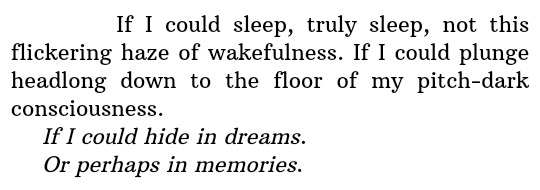
Han Kang, Human Acts (translated by Deborah Smith)
I’d never seen anything like it. You haven’t got the strength. You are exchanged for a ghost,
Hélène Cixous, Hyperdream (tr. Beverly Bie Brahic)
“The me you see isn’t me – I am my ghost.”
Mahmoud Darwish, from ‘Mural’, Mural (trans. John Berger & Rema Hammami)

fr. “Extracting the Stone of Madness” by Alejandra Pizarnik, tr. Yvette Siegert
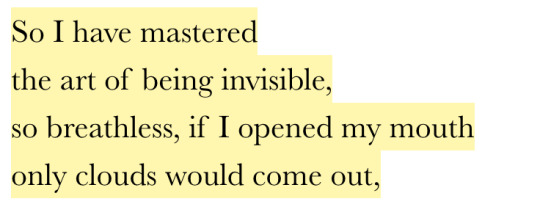
Mahtem Shiferraw, Your Body is War; “The Art of Invisibility”
The girl speaks even more slowly than usual, she’s absentminded, she who’s usually so interested in everything, her expression has changed, she’s become a spectator…
Marguerite Duras, from The Lover
Me, as ever, gone.
Anne Carson, from Decreation; “Despite her Pain, Another Day”

Mary Oliver, Blue Horses; “Blueberries”
...and / this is what we are reduced to, / the task of being disembodied / the small, small task of disappearing / without a sound, without a whisper of sorrow.
Mahtem Shiferraw, Your Body is War; “The Suicide Chamber”
Perdita doesn't seem to mind this or to sense that she is in danger of losing her right to corporeality. On the contrary, she purposefully deflects attention. When someone accidentally speaks to her, she just shakes her head. If they still won't take the hint, she'll add, 'No, I'm not here,' in a gentle way rather than a snippy one.
Helen Oyeyemi, from Gingerbread
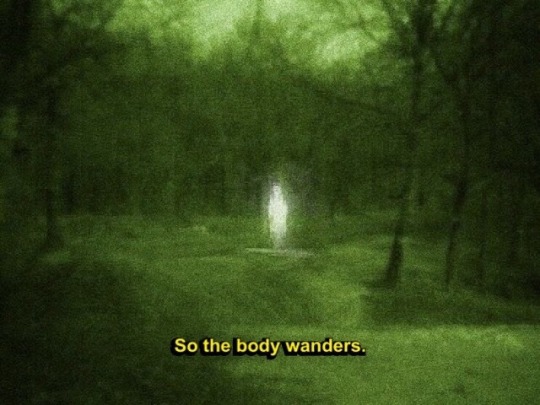
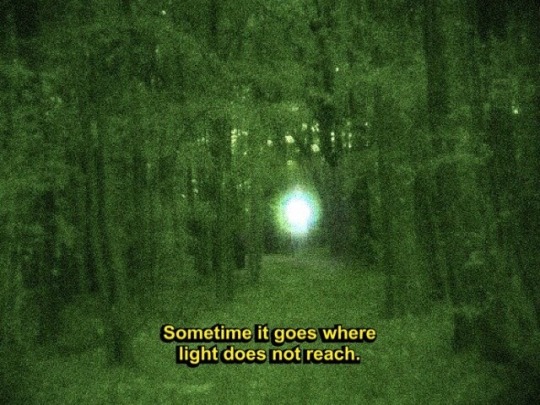
ANN LAUTERBACH x NIGHTCORP | “Eclipse with Object”, And For Example (1994); untitled photos/edits by @nightcorp, published 14 July 2019 (x)

Christa Wolf, Cassandra: A Novel and Four Essays (tr. Jan van Heurck)
The girl is in a trance. All day in a kind of trance… She never makes a gesture. Immobile. Confronting herself. Surprised. Somnambulistic. She only moves to become someone else.
Anaïs Nin, from Nearer the Moon: The Previously Unpublished Unexpurgated Diary, 1937-1939
I don’t seem to want / anything others want. I don’t even know if / I want something. To be perfectly quiet, still alive / with no one pressing me.
Alice Notley, from Certain Magical Acts; “I Went Down There”

Sue Zhao
...I turned apathetic and silent. I could not say the most important thing, so it no longer occurred to me to say anything.
Christa Wolf, Cassandra: A Novel and Four Essays (tr. Jan van Heurck)
And I wish that I was someone else, a girl with words behind her face, not this one done up like a stone in herself.
Eimear McBride, from The Lesser Bohemians

Anna Kamienska, from A Nest of Quiet: A Notebook

Janet Fitch, from White Oleander
It was like not feeling real any more. Disconnected despite all the talking. Watching the self I’d built up over four or five years just crack and fall off me like paint.
Eimear McBride, from The Lesser Bohemians
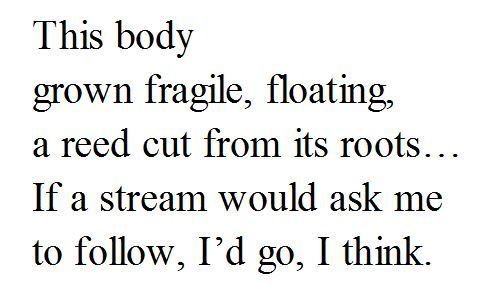
Ono No Komachi, tr. by Jane Hirshfield and Mariko Oratani, from The Ink Dark Moon Love Poems by Ono No Komachi and Izumi Shikibu
I just can’t bear to think about it, actually. Just…empty. All day and night. Day after day and night after night.
Harold Pinter, from Betrayal
and i / learned to see but not show feeling and i learned to talk / while not / screaming
Nikki Giovanni, from "Poem of Angela Yvonne Davis”

Henry Dumas, Knees of a Natural Man: The Selected Poetry of Henry Dumas; “Saba”
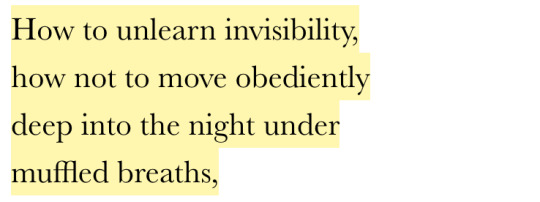
Mahtem Shiferraw, Your Body is War; “The Memory of the Body”

Olga Broumas, Beginning with O; “Love Lines”

Joanna Klink, from “Winter Field”
Sometimes, when I'm careless, I think survival is easy: you just keep moving forward with what you have, or what's left of what you were given, until something changes—or you realize, at last, that you can change without disappearing, that all you had to do was wait until the storm passes you over and you find that—yes—your name is still attached to a living being.
Ocean Vuong, from On Earth We’re Briefly Gorgeous
#and you're not pestering at all mi amor <3#ask#anon#compilation#you can also look through these tags:#la sonnambula#but we are ghosts only#quote compilation#long post
554 notes
·
View notes
Note
Hi! I apologize if this is out of pocket or otherwise too broad of a question, but I’ve been looking for a long time and simply don’t know where else to ask.
Do you know what the average calendar for St. Petersburg society and the Imperial family was like? Or do you have any resources on the topic? As in, what ceremonies took place every year that they had to attend, how they happened etc. I’ve heard of the “opening of the season/blessing of the waters” but I haven’t found any good accounts of how this ceremony went down, or when. I’ve also heard of things like the Tsesarevich’s 16th birthday involving an oath. How often the imperial family would be taking receptions, and that kind of a thing. These are just specific examples but the general question here is simply about the typical social season for St. Petersburg society, like how in London there was a season that had scheduled events like the Cowes Regatta and Royal ascot. Was there an equivalent for Russian society?
References to books or articles on these topics is greatly appreciated too!
Thank you in advance!
Hello there! This IS a really broad question. I think pointing you to some literature might be the best option here :D
For day to day routine of the last Imperial family, there are all the books by Helen Azar. She also edited Olga and Maria´s 1913 diaries, so the Romanov tercentenary celebrations are roughly covered there too.
If you are interested in more detailed information about the ceremonies that were a part of imperial life, I would recommend "Scenarios of Power" by Richard S. Wortman. The book is originally in two volumes (here and here), quite expensive and difficult to find, but there is also a more commonly accessible abridged version too.
An excellent overview of pretty much every aspect of how imperial person underwent as they grew up and came to adulthood etc is also to be found in books by Margarita Nelipa. I would recommend her exhaustive biography of Alexander III, or perhaps her study of Tsarevich Alexei.
Finally, it might be good to look into some of the Romanov memoirs to gain some perspective on how they personally viewed the important ceremonies. Perhaps the memoir of Grand Duchess Maria Pavlovna might be of interest there.
Hope this helps :)
35 notes
·
View notes
Text
Just a little post about my ocs and their sexualities/gender identities! I find it very important to include diversity in a very natural way in my stories (and ngl, it's a normal thing. It's a part of life to see different sexualities and gender identities all around so i found it really important to normalise this in the stories I write)
Niv Larson: bisexual, he/him pronouns. Doesn't mind they/them either.
Klaus: gay, he/him pronouns.
Olga: transgender, mtf, she/her pronouns
Magni: straight af, he/him pronouns
Bendik Forrad: probably straight. We do not know, he/him pronouns
Sunniva Larson: straight, she/her pronouns
Helene Larson: pansexual, she/her pronouns
Amanda Forrad: we, again, do not know. Can be anything, really
Siri Vínteri: asexual, bicurious she/her pronouns
Adelaide Jorgenson: aroace, she/her pronouns
Ludvig Forrad: straight, he/him pronouns
Unnyr Litt: lesbian, she/her pronouns
Catherina: lesbian, she/they pronouns
Lilja Vínteri: pansexual, she/her pronouns
Felix Vínteri: bisexual, but doesn't express it. He/him pronouns
Elisabeth Vínteri: straight, she/her pronouns
@rosiethedragongeek for the tags! Another bit of oc information :D
5 notes
·
View notes
Note
May I ask if you have explanation about Princess Elizabeth(Greece) features? I always wonder of her features since her sisters are famous than her ,so I don't really read much about her.
It was at Tatoi, in May 1903, that our little daughter Olga made her appearance. The following year, also in May, our second daughter, Elizabeth, arrived; she was as dark as her sister was fair. - Prince Nicholas of Greece
Elizabeth, who, because of her masses of dark curling hair, was always called "Woolly," had inherited her mother's eyes. - Meriel Buchanan
Aunt Marina and my mother were both very talented painters and sketchers, like their father, and also helped grandmother Helen a great deal with her charity work. - Count Hans Veit, Elizabeth's son.
My mother was a soft soul and bad times really affected her. . . don't mistake this, she had a strong will and was a survivor, but the atrocities of the war, combined with the loss of friends and family and the destruction all around us affected her deeply. - Hans Veit
My mother was a beautiful woman, and I say so not as her son, but as someone who appreciates beautiful people and things. She painted and sketched rather well. She had a great sense of beauty and was very elegant by nature. My mother was extremely modest and possessed great charisma and charm. Olga and Marina were more alike, but the three were extremely close. My mother loved gardening and she was quite good at it. [. . .] Mother was very religious and remained a fervent Orthodox her entire life. She would go to church with us, we are Catholics, but she never considered changing her religion. - Hans Veit
My Aunt Elizabeth was adorable. He was difficult, her husband, I didn't care for him at all, but she was kind and loving and very warm. Beautiful amber-colored eyes, I remember. She was beautiful. - Elizabeth of Yugoslavia
I am sure it was very difficult for my mother as she was not German and was very cut off from her own family. She did not speak German well and you weren't allowed to speak foreign languages. She was considered not only to be a foreigner but a dangerous foreigner, having a sister in England, and another one in Africa, who had been in Serbia. But she loved to go to the village to talk to the villagers, always dressed as simply as possible, and she wore no make-up. - Archduchess Helen, Elizabeth's daughter.
8 notes
·
View notes
Note
What is the Romanov family's favorite food? Do they like sweet 🍩 or salty 🍕things?
Hello there! Thank you for your question.
Olga, Tatiana, Maria, Anastasia, and Alexei seem to have had a preference for sweet things! One of the palace staff, Jim Hercules, would bring back bags of sweets for the children when he went back home on holiday to America.
Alexei's favourite food was blini, a sweet pancake-like food. He wrote in his diary about eating sixteen of them in one sitting!
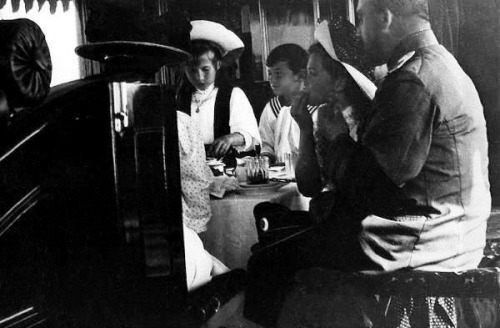

Nicholas preferred more savoury food, simple Russian meals of vegetables, breaded meat, and black bread.
Alexandra preferred food without meat for religious reasons, when her health allowed. She also loved to drink coffee.
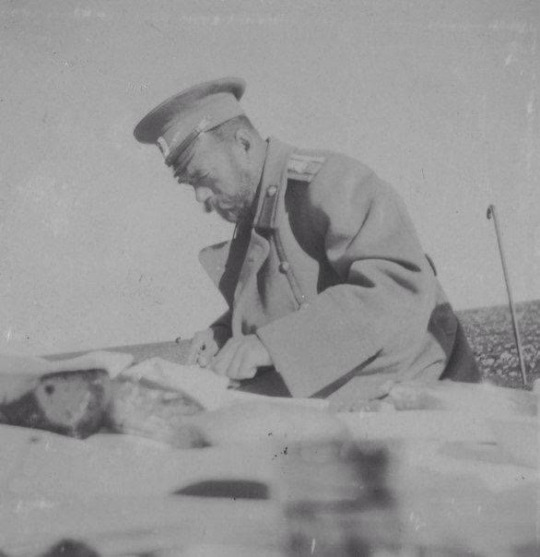
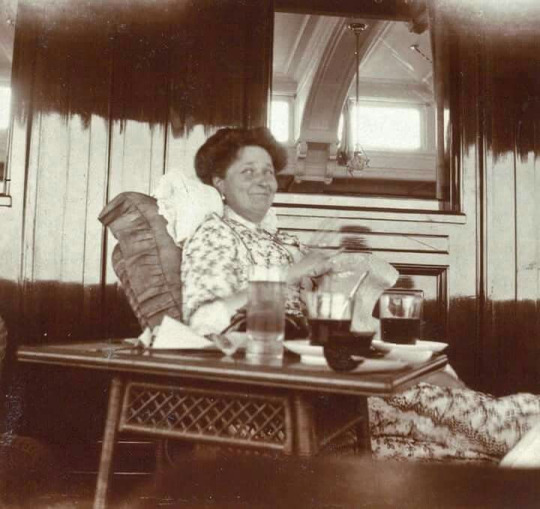
More information. including menus used by the family and recipes, has been collected by Helen Azar in her recent book, 'Lunch on the Balcony'.
#q#ask#answered#food#Nicholas II#alexandra feodorovna#olga nikolaevna#tatiana nikolaevna#maria nikolaevna#anastasia nikolaevna#otma#romanov#romanovs#alexei nikolaevich#jim hercules
47 notes
·
View notes
Photo

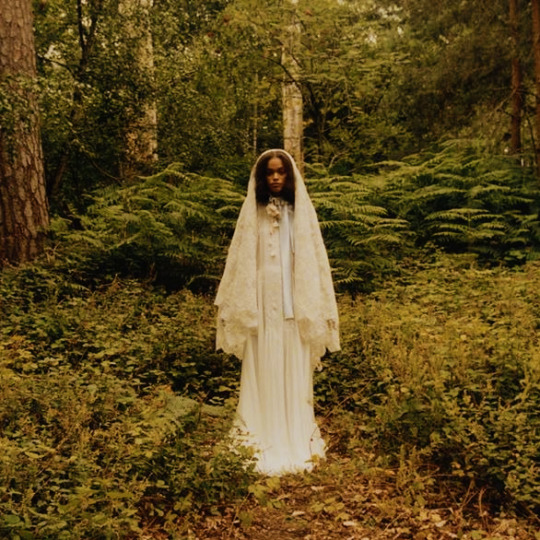
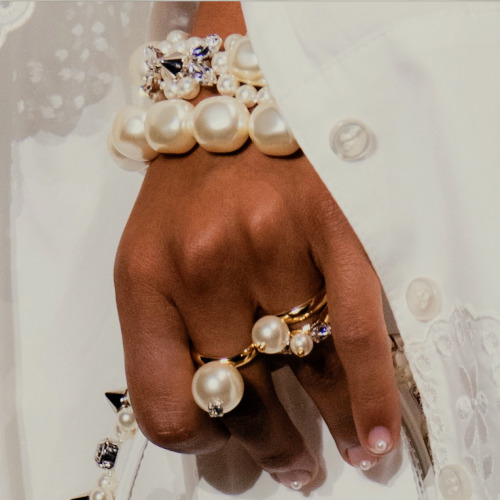
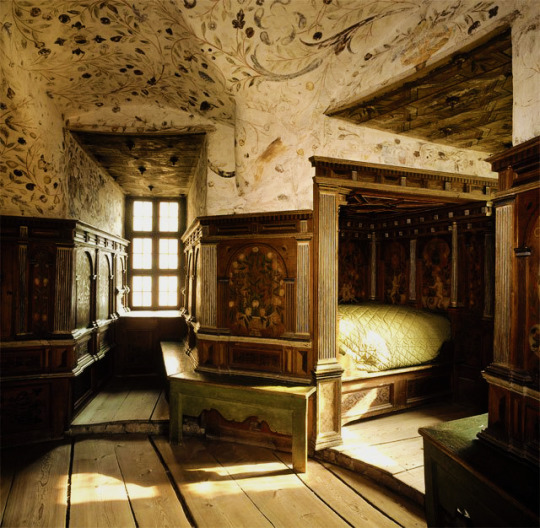



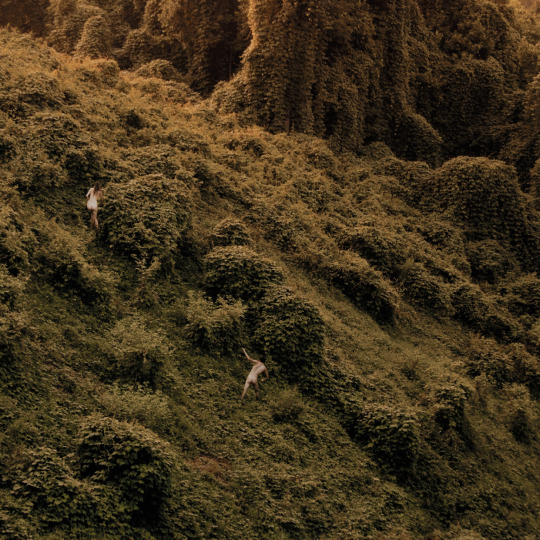
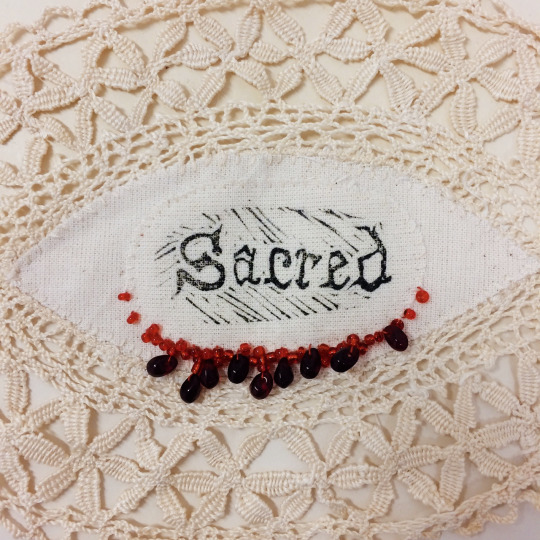
professional vibe diagnosis: bee @brownpaperhag 💛
KEY TERMS: matriarchs, prophetesses, sorceresses, wise women, afrofuturism, polish vintage, textile design, embroidery, handiwork, architecture, material objects, physicality, the sense of touch, the joys of listmaking, taxonomy, morphology, cataloguing, speculative fiction, short stories.
media recommendations under the cut!
— when it comes to speculative short stories, Small Beer Press is where it’s at, and Kelly Link, its founder, is one of my favourite authors, ever. i’d recommend starting with Pretty Monsters! or this particular tale (about Eastern European diaspora, by the by). — Sofia Samatar’s Tender is another splendid collection, and this is probably my favourite story of hers. — also, if you don’t feel like committing to a single author, there’s always some great anthologies; i’d especially recommend The New Voices of Fantasy (edited by Peter Beagle, the author of The Last Unicorn!), anything edited by the VanderMeers, and Fantastic Women: 18 Tales of the Surreal and the Sublime. — (re: afrofuturism) while it’s still on my tbr list, one of my closest friends (whose taste is impeccable, and who is responsible for recommending me some of my now-favourite books) swears by Nnedi Okorafor's Binti novels, and i trust her with my life. also, Rosewater by Tade Thompson! i still need to read the other books in the series, ah. — (re: elderly female protagonists) Angela Carter’s Wise Children, Baba Yaga Laid an Egg by Dubravka Ugrešić, The Hearing Trumpet by Leonora Carrington, Olga Tokarczuk’s Drive Your Plow Over the Bones of the Dead (!), Lolly Willowes by Sylvia Townsend Warner, anything by Maggie Atwood, honestly. — Anna Swir! there are very few writers who have managed to capture the joys and woes of womanhood (in its various stages) as well as she did. i wanted to link her poems in their original polish, but? they’re not available online? there’s plenty of quality english translations, though! (x) (x) (x) (x) also, this article <3 (In Świrszczyńska’s poetry, the woman gives birth not only to children but also to the world. She appears in many different roles which are very often expressed in the first person: mother, daughter, loving, desiring, tender and grieving, crying after the deceased, taking care of the wounded, wild but very practical...) — this poem by Wisława Szymborska! (here in polish) — for some reason, your blog really reminds me of the latter part of Twig’s home with you music video... it inspired the moodboard, actually! — White is for Witching, Helen Oyeyemi (but also her short stories!) (also, this article on her <3), — The Broken Earth Trilogy by N. K. Jemisin (it won three Hugos!), — anything written by Olga Tokarczuk! i already mentioned Drive Your Plow..., but her entire bibliography is simply bewitching. — Invisible Cities by Italo Calvino (imaginary cityscapes! poetic architecture!), — The Infinity of Lists by Umberto Eco (a personal fave, although it’s rather difficult to acquire), — Lists of Note (to be perfectly honest, it’s more of a coffee table book than anything of substance, but it’s entertaining nonetheless) — List Cultures: Knowledge and Poetics from Mesopotamia to BuzzFeed, — A Place for Everything: The Curious History of Alphabetical Order, — The Golden Thread: How Fabric Changed History, — The Fabric of Civilization: How Textiles Made the World, — The Subversive Stitch: Embroidery and the Making of the Feminine, — Threads of Life: A History of the World Through the Eye of a Needle, — The Beauty of Everyday Things, — Fewer, Better Things: The Hidden Wisdom of Objects, — The Secret Lives of Color, — The Poetics of Space (the fact that Mark Danielewski—of House of Leaves fame—wrote a foreword for this edition... yeah), — Architecture and Violence (re: your pinned post!) — some of my absolute favourite books about architecture and design were originally written in polish (and never translated into english, alas), and i can’t help but include at least some of them (plus, they’re a much more enjoyable way of keeping up with the language than duolingo and its hematologia): Miejski grunt. 250 lat polskiej gry z nowoczesnością, Wyroby. Pomysłowość wokół nas, Wanna z kolumnadą, Duchologia polska. Rzeczy i ludzie w latach transformacji, Ukryty modernizm. Warszawa według Christiana Kereza, Miasto Archipelag. Polska mniejszych miast, Źle urodzone. Reportaże o architekturze PRL-u. — speaking of polishness! i think you’d really enjoy sung poetry. here are some of my faves (my taste in music is that of a typical babcia): (x) (x) (x) (x) (x) (x) (x) (x)
70 notes
·
View notes